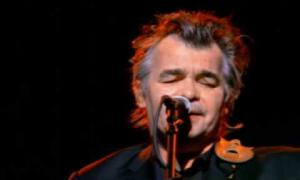Why I (Finally) Like Speeches
March 21, 2018
Vital Speeches publisher and PSA founder David Murray did not always love speeches. In fact, he is still acquiring the taste.
Last week I wrote about my appreciation for speechwriters as good company. This week, I'd like to write about my appreciation for speechwriters as good citizens.
When I was young, I thought about speeches what most young people think about speeches: They were boring.
I guess my dad would watch the State of the Union Address every year. But then, he did all kinds of horrible things that I had no intention of ever doing, like buying insurance, filing taxes and doing whatever he did with that tube of Preparation H.
When I graduated from college, probably the only speeches I'd heard that were worth hearing were some inspired lectures by my Kent State English professors, and a jaunty but canned campus appearance by Kurt Vonnegut. Speeches? They all sounded like rearranged boilerplate to me. I didn't even attend my commencement.
My first journalism job was as an editorial assistant on Speechwriters Newsletter, a post I took after I had been rejected by Bowler's Journal for not having enough bowling experience (seriously). The only aspect of the subject that I could get interested in was: Were these speechwriters writing for people whose ideas they disagreed with? Young people prefer moral issues to real issues, because real issues are so dull—as dull as a bunch of old people talking to a bunch of other old people in even older conference ballrooms.
My writing career took me far afield from speechwriting. And by the time it brought me back, I'd gotten old enough myself to be interested in politics, and the idea that a speech could be written and spoken in a way that it might actually change people's minds. I'd also gotten old enough to appreciate the symbolic importance of social rituals and traditions, and the speeches that are often part of them.
So it became easier for me to sincerely honor speechwriters who gave their work lives to the careful crafting of these speeches—rare but meaningful persuasive speeches, and more common but still socially useful ceremonial speeches. And I began to give more of my own heart's blood to the furtherance of this art, as editor of Vital Speeches of the Day, and then to their profession, as founder and executive director of the Professional Speechwriters Association.
Not long ago, I realized I may have reached a new phase in my appreciation for speeches. I may have found (or perhaps just articulated) a "middle purpose" for speeches and speechwriters—in the vast territory between true communication and pure social symbolism.
A close speechwriter friend of mine was calling me just about every day for two weeks. He does that, when a big speech is coming up, to bounce ideas off me. I don't even think he cares about my feedback very much. He just needs to hear himself say the stuff to another person, and his wife works during the day.
But this speech was a bigger deal than usual. I can't say much about it but I think I can reveal enough: It was a touchy speech in a difficult situation influenced by the stone-cold crazy political atmosphere we are living in. The speechwriter had to write a speech that set the tone for the rest of the event, that acknowledged and yet did not normalize the current craziness while still maintaining the continuity and the civility of the American political conversation—and drawing a rhetorical line in defense of decency. And it had to be funny.
The audience was influential, so the stakes were high. The degree of difficulty was nearly preposterous to me—and I'm an needle-threader going way back.
The result, which I read off a script and did not see or hear, moved me to tell the speechwriter it was "a masterpiece of patriotic class." Suddenly completely justified was the agonizing care he took with it, even in the face of my own protestations that the job was impossible, or my subtle suggestions that he was over-worrying it. (Or at least over-worrying me.)
Class, in public rhetoric, is patriotic, now and forever. And professional speechwriters, while they dream of writing "I Have a Dream," spend their workdays routinely writing public rhetoric—whether it's remarks for the CFO to deliver at the employee town hall, or a thank-you for the nonprofit boss to give at the big fundraising gala, or a keynote at Davos—that is more thoughtful than it otherwise might have been, and more articulate, more learned, more memorable, more meaningful, and more mellifluous, while we're at it.
Speechwriters help leaders speak better. Better-speaking leaders, especially as a cold-water contrast to prominent worse-speaking leaders, are good for the society they lead. So: Speechwriters are good for the society.
Boy, am I getting old, or what? —DM


